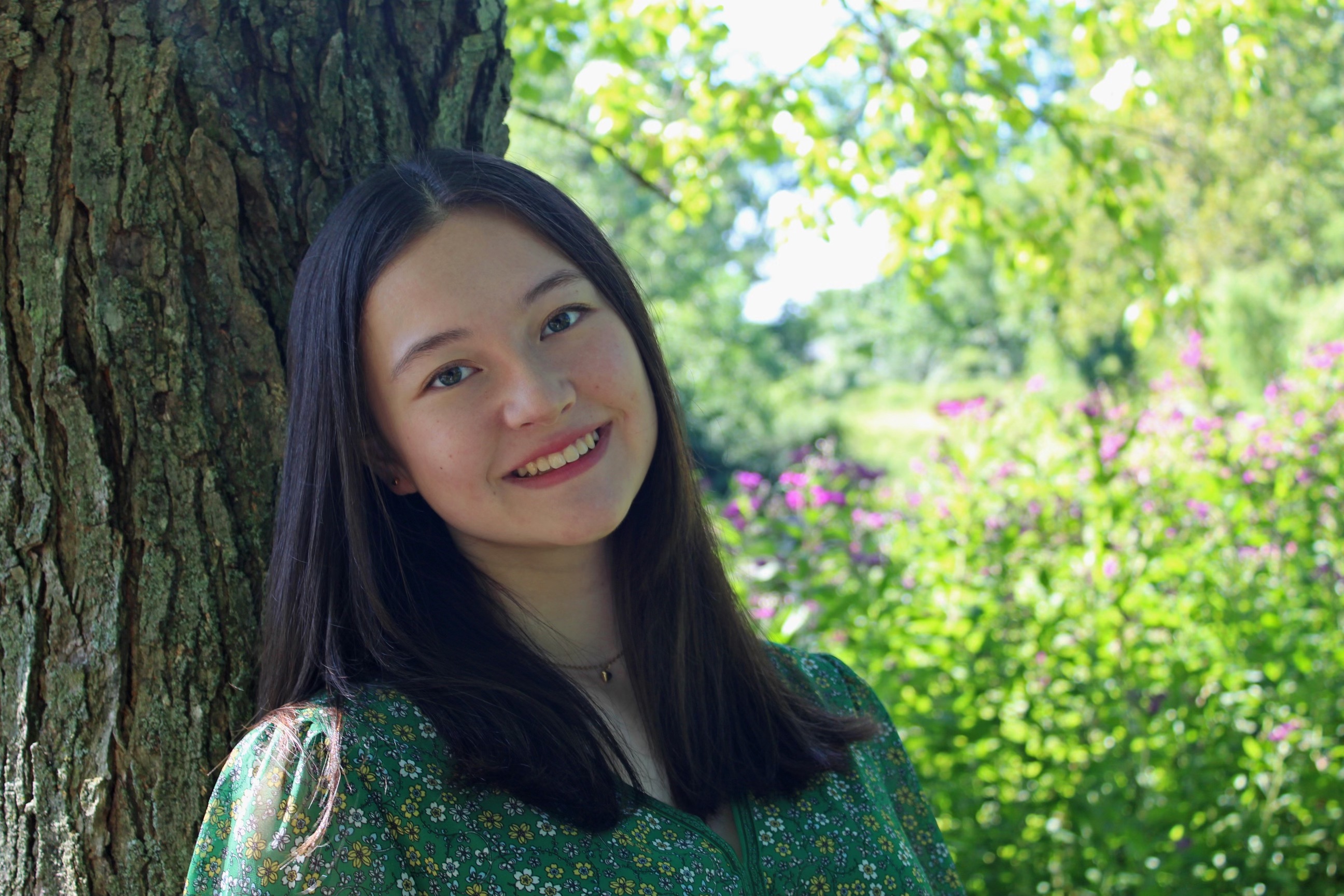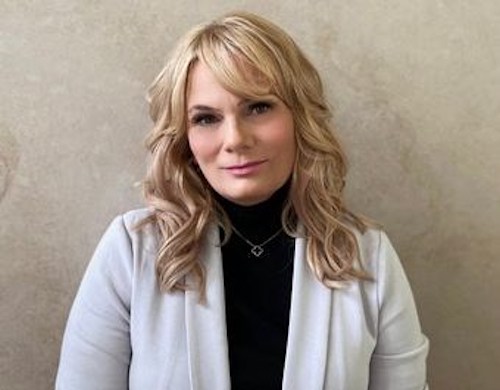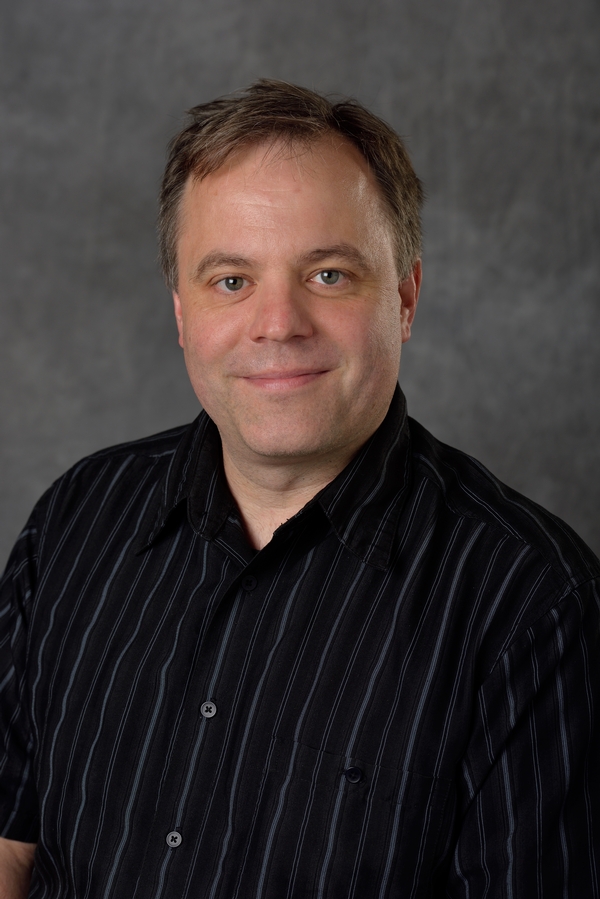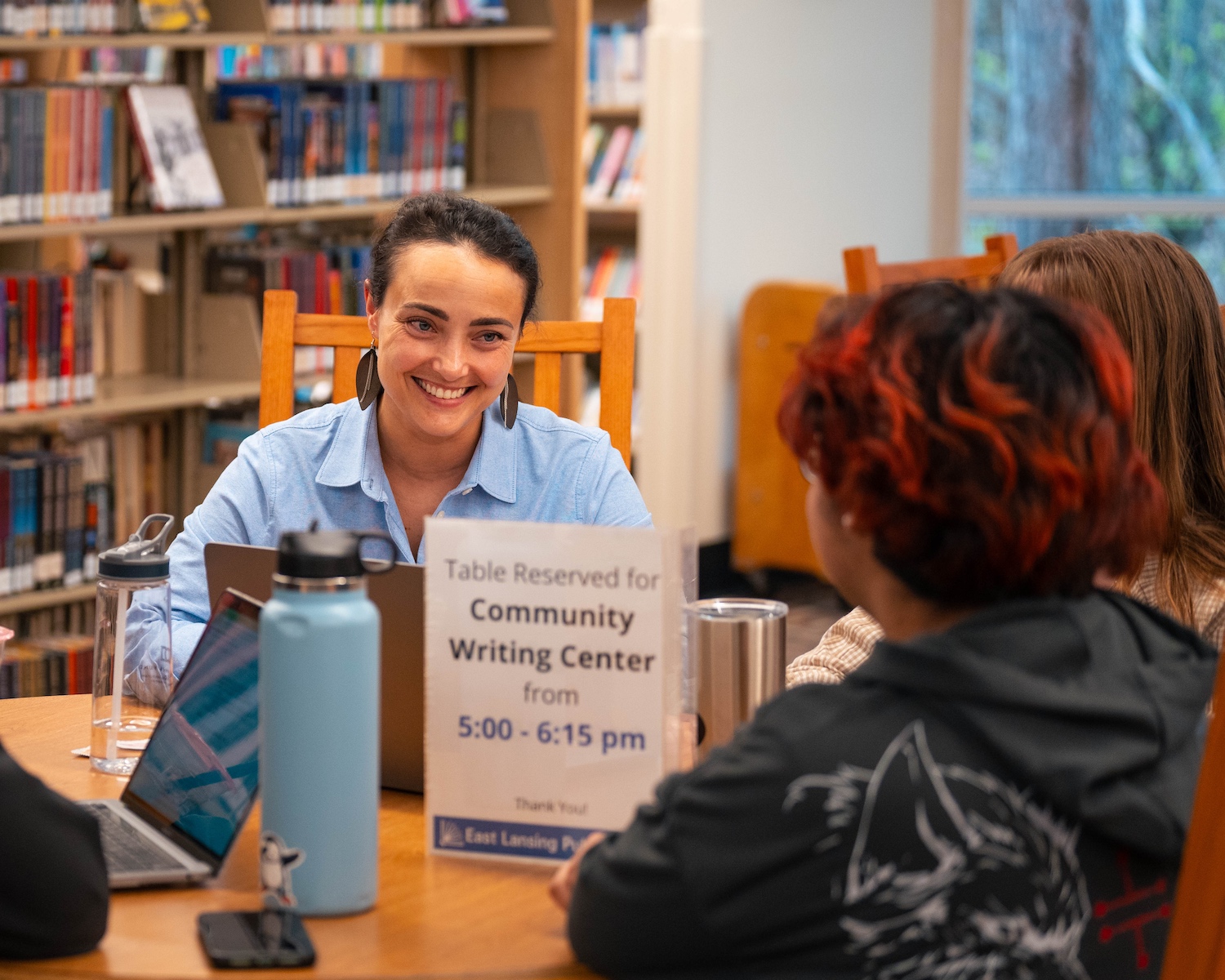At Michigan State University, learning goes beyond the classroom and, often, beyond the borders of campus where students make a real-world impact. Recognized as the No. 1 public university for service-learning by U.S. News & World Report, MSU is leading the charge in turning students into changemakers. Spartans are stepping up, rolling up their sleeves and transforming communities near and far through meaningful service and civic engagement.
Award-winning efforts
At an awards banquet in January, 130 MSU students were honored by the Office of the President and the campus-based Center for Community Engaged Learning with the 2024 Spartan Volunteer Service Award. To receive the award, each student logged more than 100 hours of community service and engagement for the year — juggling personal time, school, maybe a job and more.

The 130 awardees, whose majors range from elementary education, jazz and Spanish to civil engineering, neuroscience and human biology, logged a remarkable 23,628 total hours of community engagement.
These Spartans are not alone. While they went above and beyond to log 100-plus hours in 365 days, it is common for MSU students to offer their time and efforts to help communities surrounding East Lansing, across Michigan and around the globe. In fact, for the 2023-24 academic year 24,395 students registered to volunteer with the Center for Community Engaged Learning.
With that much engagement, it’s no surprise that MSU was named No. 1 in service-learning among public universities and No. 8 overall in the U.S. News & World Report 2024 Best Colleges rankings.
Spartans are living up to a core piece of MSU’s mission: contributing to a culture of social good. As Marissa Malleck, a junior who volunteered nearly 820 hours and was honored with a Spartan Volunteer Service Award, puts it, “I prioritize volunteering because I think it’s important to help others.”
What is community-engaged learning?
The Center for Community Engaged Learning, which reports to the Office of University Outreach and Engagement and Student Life and Engagement, is the hub for community- engaged learning at MSU. This teaching and learning approach integrates meaningful community partnerships with instruction and critical reflection to enrich the academic experience, teach civic and social responsibility and strengthen communities. The center’s work is aligned with the United Nations’ Sustainable Development Goals and the Social Change Wheel, linking local actions with global initiatives.
“We are doing work with partners, not for partners,” says Renee Brown, executive director of the center. “Students serve with a community and learn about the discipline through their reflection on that service.”
Brown and the team at the center work with departments and faculty across the university to provide opportunities for students to participate in community-engaged learning. There are two main avenues through which the center assists: volunteer opportunities like Spartan Days of Service and Alternative Spring Break or courses that integrate community engaged learning into the curriculum.
Annual events like Spartan Days of Service, a joint effort between the Center for Community Engaged Learning and the MSU Alumni Office that helps local communities, has attracted upwards of 7,000 students since the program started in Spetember 2014.
Given the civic mindedness of the center, the team also works with MSUvote, a nonpartisan committee that educates students about elections and helps with voter registration. “We are committed to making sure that when civic skills can be taught in the classroom or an understanding of how a democracy works,” Brown says, “we are working with faculty across campus to infuse that into curriculums.”
From the classroom to the community
Research conducted by U.S. News & World Report shows that community engaged learning experiences are linked to student success and positive learning outcomes, and faculty members from the College of Arts and Letters to the College of Osteopathic Medicine are including the method in their curriculum.
Dirk Colbry is a senior specialist professor in the Department of Computational Mathematics, Science and Engineering in the College of Engineering and the College of Natural Science. He has an eclectic area of research and enjoys working on mathematics and data projects that connect with a social justice issue. Students in the program work on a capstone project — “a real-world project that engages students,” as Colbry puts it — and he often guides students as they go through the process. He hopes that they can find a project that focuses on a social justice issue that has an impact on the state of Michigan and students’ lives.
Working with the Center for Community Engaged Learning’s academic programs team, Colbry and his students connected with HOPE Village Revitalization in Detroit, a community organization committed to improving the quality of life in the Hope Village neighborhood. Colbry and his students looked at data analyses of housing prices to give that community more information about the values of homes there and in surrounding areas to value Hope Village homes accordingly. They have also worked closely with the QSIDE Institute to investigate metrics in sentencing data from judges to see if biases may be playing a role. “The idea,” Colbry says of his team’s assistance on projects, “is to provide the technical expertise. In the case of the sentencing data, the judges have been interested in the results. They don’t always have a way of looking at their sentencing in an aggregate way. We can say, ‘There does seem to be a bias based on gender, ethnicity or whatever it might be.’ It can be helpful to see something spelled out for you.”
Spartans provide technical expertise not only with numbers and data, but also with communication skills. At the Writing Center at MSU, Director Grace Pregent and her team work with students, faculty, staff, alumni and community members across campus and beyond to, as she puts it, “foster writing cultures and practices while promoting diverse and interdisciplinary ways of thinking, composing and researching.” The Writing Center provides a wide range of services for students, faculty and staff and the surrounding community.
Since 2020, the Writing Center has partnered with the East Lansing Public Library to establish the Community Writing Center. More than 100 MSU students have engaged with community members at the library on a wide range of literacy projects such as grants, websites, creative writing and résumés. Many of these students are in Pregent’s class. “I believe community-engaged learning is central to the Spartan experience,” she says, “and by that, I mean that community-engaged experiences support students in fostering their own identities as lifelong learners and engaged citizens.”
For the students in the Writing Center’s community engaged learning course, the work they are doing in the library is not only helpful for the community, but exciting for them.
On an evening in April, students met at the library with Pregent and community members. Some students put together goodie bags for an upcoming children’s event at the library, a few set up a space with books for community members to peruse and others spoke with Pregent about their coursework and the upcoming summer programming.
The semester was coming to an end, but it seemed the students were going to miss visiting the writing center every week. The message from the class was clear: the students liked helping their community, and they were having fun doing it.
Preparing students for successful futures
Malleck, the junior in MSU’s Department of Microbiology, Genetics and Immunology who volunteered over 800 hours last year, earned the second highest number of service hours among all students.
Malleck plans to go into the medical field once she graduates and would like to become a physician. She volunteers as a crisis advocate for the Survivor Advocacy and Crisis Intervention Team at the MSU Center for Survivors and as a patient transport at UM Health-Sparrow, escorting patients during their stay. Malleck believes that her volunteer work is helping prepare her for her career.
“When I’m on the crisis hotline, I’m assisting survivors not only in the Greater Lansing area, but across the nation,” Malleck says. “I’m developing interpersonal skills and being able to provide resources and work with helping people individually, and I think it has been really valuable for me to develop as a person and a student.”
From volunteering as crisis advocates to supporting local nonprofits, Spartans are committed to social change. As a new academic year begins, the Center for Community Engaged Learning at MSU continues to offer students opportunities to serve their communities while becoming lifelong learners and active citizens, reinforcing the university’s mission of fostering a culture of engagement and social responsibility.
Learn more about the Center for Community Engaged Learning at MSU.


